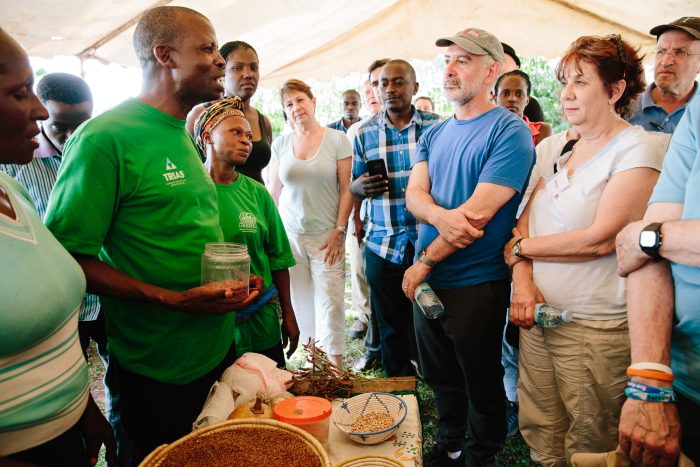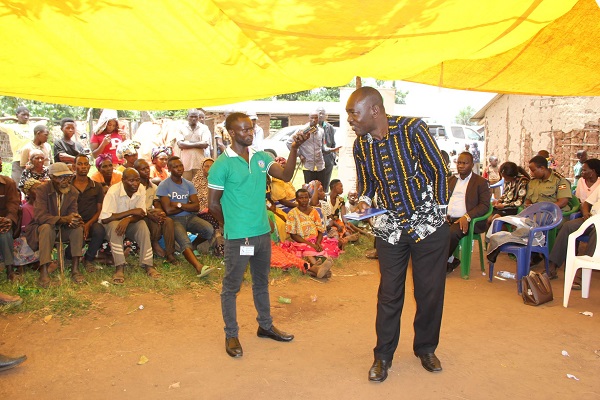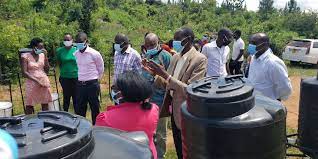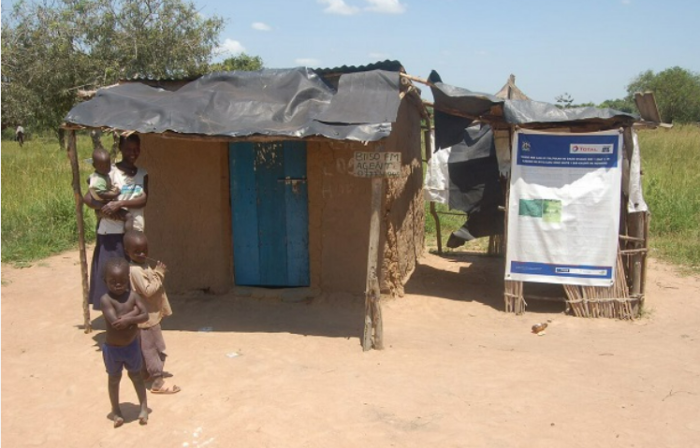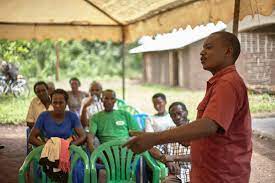Sustainability School
In 2010, NAPE initiated the Sustainability school approach which advocates and seeks to give the communities capacity to effectively participate in social economic and political change processes. The aim of this school is the transfer of power from dominant groups to the poor, marginalized disadvantaged and disenfranchised who are always the majority. It is a problem solving mechanism using an andragogical learning methodology.
The school offers training courses for activists who use the knowledge acquired during the course in order to assist communities in solving the problems they encounter in their daily life regarding unsustainable practices and challenges which arise out of environmental hazards and the unintended effects of developmental projects. Thus, the school – through the trained activists (In the Sustainability villages) emphasizes participation of stakeholders, and more especially local community involvement in the development processes and fighting for social justice.
The sustainability school focuses on key thematic areas such as land use and food security, oil governance, forests and large plantations, large dams and energy, climate change among others. At times, the school uses demonstrations and experience sharing meetings as a way of facilitating learning amongst the target beneficiaries. The School works through the establishment of sustainability villages which are issue not political localities. In each village, selected people are trained as community educators so that they can continue facilitating and guiding trainings in their areas using the problem solving and action oriented approach.
In the last four years, 24 Sustainability villages have been established in the Districts of Buikwe, Kalangala, Kiryandongo, Kamwenge, Kasese, Hoima and Buliisa. In these sustainability villages over 70 activists have been trained as community educators and they are the ones who do sensitization and mobilization of people at grassroots. Other activities for example public dialogues/political cafes, local, regional and international stakeholders meetings, radio talks and coverage of Sustainability school work in newspapers and other media have all gone a long way in promoting this approach far and wide.
NAPE envisages that through this approach, the communities can continue to debate and get their own solutions to their own sustainability problems even when NAPE and other development partners have pulled out. NAPE also believes that challenges of the environment and climate change can better be handled if the communities at the grassroots are involved and made well aware of their roles.
NAPE also is engaged in training partner NGOs and CBOs so that they can in turn reach out to more community groups. NAPE has for example is training partner CBOs is the oil region on community mobilization, resource mobilization, report writing and accountability. We believe that when communities are empowered with the necessary skills for advocating for their rights and the rights of nature and the environment, the government and its development partners will pay more attention to them and this will in turn lead to improved service delivery and social wellbeing.
Community Green Radio
The Community Green Radio is an offshoot of the main Sustainability School programme. It was initiated and established to speed up the process of amplifying the voices of communities in Bunyoro sub-region in Western Uganda who are grappling with the challenges posed by the mushrooming oil industry in the area. The Community Green Radio has been on air since August 1, 2014 and is increasingly becoming popular in the region because of its people/community centred programming. Currently the listeners of the radio have formed themselves into 9 Listeners Clubs.
Some of the Listeners clubs were formed out of the existing Sustainability School villages while others which were formed independently are also turning into Sustainability villages. This ensures that the Sustainability School approach remain applicable both in the main Sustainability School and in the Community Green Radio. More information on the Community Green Radio can be accessed at: www.greenradio.ug

